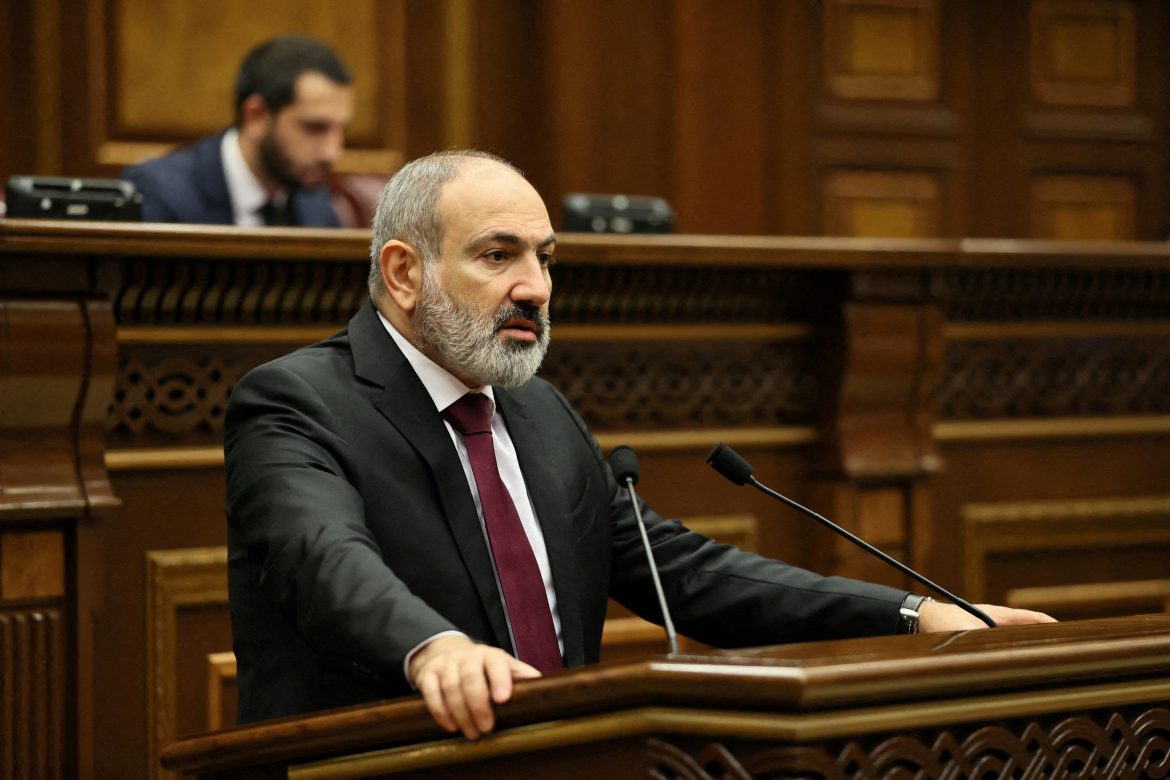By Andranik Aboyan
In recent developments, Armenia’s ruling Civil Contract party appears to be navigating an increasingly complex internal landscape. This was evidenced by a recent party meeting chaired by Prime Minister Nikol Pashinyan, where he described a “merciless” atmosphere of self-critique. What initially seems like a routine exercise in accountability could, in reality, reflect deeper tensions brewing beneath the surface. The Civil Contract party, which once rallied under Pashinyan’s populist promises, may now be showing fractures as its leaders contend with mounting pressure and diverging interests.
According to a Facebook post by Pashinyan, party members engaged in robust self-criticism, which included a series of sharp exchanges. This meeting coincided with various signals of discord within the administration, such as the recent resignation of the justice minister and a fiery debate in parliament involving a senior government-affiliated investigator. Adding to the tension, rumors have circulated regarding efforts to unseat Andranik Kocharyan from his position as head of the National Assembly’s defense and security committee. While some party members downplayed these incidents as “ordinary disagreements,” others admitted that the exchanges were indeed intense.
Notably, the rhetoric from some key figures underscores a veiled struggle within the party. Narek Babayan, a lawmaker with Civil Contract, hesitated to characterize the session’s critique as truly “merciless,” though he hinted that it could have gone further. Another member, Armen Khachatrian, embraced the intensity, describing it as an honest and brutal reckoning among colleagues. Meanwhile, Hrachya Hakobyan, the Prime Minister’s brother-in-law, described the meeting as an opportunity to discuss “internal matters,” yet he declined to specify the issues, only admitting that corruption concerns were part of the agenda. This focus on corruption is often a tactic employed by authoritarian governments to purge dissent, raising questions about the motivations behind such discussions within the party.
The guarded language and hesitations in these responses suggest that the Civil Contract leadership might be grappling with something more profound than mere policy disagreements. As officials navigate accusations of corruption and factionalism, questions loom over whether the party’s unity can withstand the growing strain. Some within Pashinyan’s circle may see themselves at odds with others who are equally driven by the lure of power, control, and influence. If these dynamics persist, the internal cohesion of Civil Contract could be tested, as personal interests increasingly overshadow the collective ideals that once bound the party together.
This rising tide of dissent signals an evolving power dynamic within Armenia’s ruling elite, where the Civil Contract party—once united in its reformist zeal—now appears to be fragmenting under the weight of influence, ambition, and internal rivalries. The “merciless” atmosphere of critique might be less an exercise in solidarity and more a symptom of deeper, perhaps irreconcilable, conflicts among the ruling elite.




